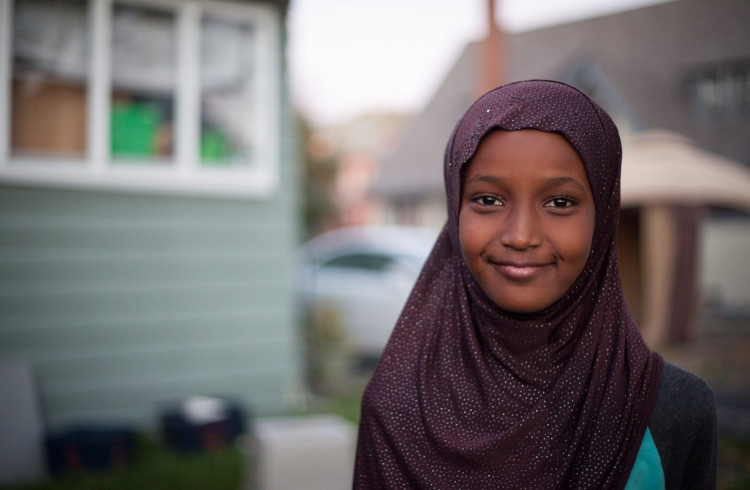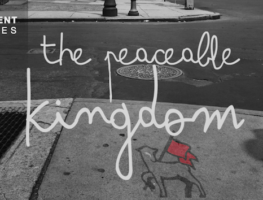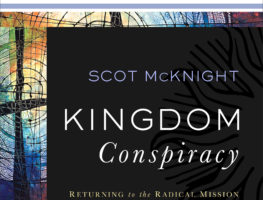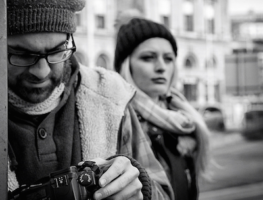His eyes looked into mine with a certain kind of intensity as he shook my hand and welcomed me into their family’s home. Each of the children smiled shyly, trying out their few words of English to greet us as visitors. Mom leaned in for the traditional double kiss and ushered us to the small seating area.
In accordance with rich traditional Middle Eastern hospitality, the nineteen year old daughter brewed and served a series of cardamom tea, turkish coffee and homemade pastries. As we partook in each sip and bite, our friend served as translator facilitating the conversation that revealed their story.
We used to be rich, our children were educated and we could buy anything we wanted to eat, wear and enjoy. When the war began, things began to change. Buying things as simple as bread became extraordinarily expensive, and there became so many enemies that we don’t even know who the enemies are that came to our neighborhood that day.
They came to the house next door to us where our best friends lived, dragging them out onto the street and threatening them. They raped the women in front of our children. They murdered my best friend right in front of me by cutting his body in half. They bombed our house and we ran with only the clothes on our backs. No documents, no money, no clothes, nothing.
The language barrier has this unique opportunity provided in conversations, allowing time for watchfulness to the expressions and body language of the storytellers. If it were not for those interim minutes from translation to translation, I don’t believe I could have sat still to listen. The horrors were too real in their eyes.
Behind them, the television ran scenes from a world filled with wars, horrors and trauma that their story brought a script to. From the pit of my gut, my own sanity cried out that I remove myself from the listening, for to bear the story itself was tearing something within me. I have spent seven years indwelling these stories, yet the rawness continues to take me off guard.
As the story was brought up to date, the chance to respond was handed to me. I looked in their eyes and began to speak. Thank you for trusting us with your story. Thank you for welcoming us into your home with such beautiful hospitality. Welcome to this city. I am so deeply sorry for the things you have seen and what has brought you here. I know that it will never leave you, and now that you have shared it, it will never leave me. I bear it with you.
The tears that could not help but form in my eyes seemed to produce a permission of sorts, and they began to fall down the cheeks of these storytellers, these brothers and sisters who I now call neighbors and hope to call friends. To cry together over the horrors of a broken world is a sacred space.
To cry together over the horrors of a broken world is a sacred space. Click To Tweet
It is in the light of such encounters that I have watched the news coming across social media, television and radio waves in recent weeks. These scenes of the horrors endured by my refugee friends playing out on a landscape far more familiar. I hear rumors of the embedded terrorists in groups of refugees, and cringe for the implications in the hearts and minds of people. In hours, what was once a dialogue of open borders and welcoming arms took a different and dehumanizing course.
Many times over, the people of the Kingdom have faced crossroads and watershed moments. I submit that we find ourselves at such a moment now. According to the United Nations High Commissioner of Refugees, “wars, conflict and persecution have forced more people than at any other time since records began to flee their homes and seek refuge and safety elsewhere… Globally, one in every 122 humans is now either a refugee, internally displaced or seeking asylum. If this were the population of a country, it would be the world’s 24th biggest.”
As this crisis burgeons and the wars find their way closer to our doorstep than we are comfortable with, our guts respond with fear and self-preservation. We have conversations with others that solidify our sense of rightness, for after all don’t we have the right to protect our families?
Oh how consumed by fear we are. Oh how protective of our rights and privileges we are. We build our walls higher while claiming to be a people of love and generosity. We believe that somehow we are more human that another because our skin is a certain shade, our god is of a certain name or our passport is of a certain nation. And yes, my friends, we all do it. We all have our battles that beckon us to activism. We all struggle to hear the other.
The land I call my own was once taken from a people. It was built on the backs of a people. It welcomed and abused a people. It sent a people out in the name of good in such a way that created dependency and social slavery. It wrestles deeply with mutual discrimination in all directions, embedded deeply in racial tensions spanning decades and tragedies. Yes, we all are broken, implicated in the dehumanizing of the other.
Where will we stand? For whom will we cry? Which battle will we fight? To whom will we open our doors? How will we define love? How will we live love?
To be human, to see human, to love human is an overwhelmingly hard road to walk. Justice requires that I open my hand to share the power and peace that I have with the other, even if in so doing my own power and peace are harmed. Hospitality requires that I offer my life to be one of welcoming the stranger with their story, even if in so doing I encounter great risk. Love requires that I do not just do for, but I know. That I do not just step in spaces of safety, but I venture into vulnerability. Love, hospitality and justice require that I believe to the core of my being that you, my brother and my sister, are also human. We are human and we are broken together.
To be human, to see human, to love human is an overwhelmingly hard road to walk. Click To Tweet
The Christian faith tradition follows after Jesus who gave up his citizenship in Heaven to become a refugee among the human race. He lived among the rejected who resided in a land without citizenship. In his teachings he declared things like: “Come… inherit the Kingdom prepared for you from the creation of the world. For I was hungry, and you fed me. I was thirsty, and you gave me a drink. I was a stranger, and you invited me into your home. I was naked, and you gave me clothing. I was sick, and you cared for me. I was in prison, and you visited me” (Matthew 25: 34-36).
Yet to follow Jesus into the whole of his way, we must count the cost. We must loosen our grip on our national politics, in exchange for a tight grasp on our Kingdom obligations. We must view the land and possessions as resources of the Kingdom, and our very lives as not our own. We lose ourselves that we may find ourselves, not as jihad fighters beckoned to physical death, but as ones redeemed from self-identified to kingdom-identified, image bearers of King himself.
We live in the now and not yet Kingdom. Our trajectory is set towards a kingdom of laughter, community, no tears and no pain. Yet it is born out today in our everyday friendship, beauty, struggle and brokenness. We are refugees with a Kingdom passport.
We are refugees with a Kingdom passport. Click To Tweet
So my brothers and sisters, my fellow refugees in the now and citizens of the not yet Kingdom, will you take up your role? Will you embark on this journey of kinship with the stranger? Will you look in their eyes and allow them to look into yours? Will you stand in solidarity with the 24th largest ‘nation’ in the world: those seeking refuge?
You have a role to play. Even if the United States doesn’t welcome one more refugee, we already had around 100,000 move into our neighborhoods in the last few years. They joined thousands of others who have fled war and horrors, hoping to start the grueling task of starting again. So where are they in your city? Have you ever had the chance to drink their tea or taste their cuisine? Have you looked in their eyes and learned their names?
We are charged with a response: to witness as kindred human or to separate as those who dehumanize. May we be so stirred that we have no choice but to see our brother and our sister for who they are: kindred human.
And may fear not hold us captive, but may love, hospitality and justice abound.
—
This Sunday is National Refugee Sunday – watch this video to learn more:





Missio Alliance Comment Policy
The Missio Alliance Writing Collectives exist as a ministry of writing to resource theological practitioners for mission. From our Leading Voices to our regular Writing Team and those invited to publish with us as Community Voices, we are creating a space for thoughtful engagement of critical issues and questions facing the North American Church in God’s mission. This sort of thoughtful engagement is something that we seek to engender not only in our publishing, but in conversations that unfold as a result in the comment section of our articles.
Unfortunately, because of the relational distance introduced by online communication, “thoughtful engagement” and “comment sections” seldom go hand in hand. At the same time, censorship of comments by those who disagree with points made by authors, whose anger or limited perspective taints their words, or who simply feel the need to express their own opinion on a topic without any meaningful engagement with the article or comment in question can mask an important window into the true state of Christian discourse. As such, Missio Alliance sets forth the following suggestions for those who wish to engage in conversation around our writing:
1. Seek to understand the author’s intent.
If you disagree with something the an author said, consider framing your response as, “I hear you as saying _________. Am I understanding you correctly? If so, here’s why I disagree. _____________.
2. Seek to make your own voice heard.
We deeply desire and value the voice and perspective of our readers. However you may react to an article we publish or a fellow commenter, we encourage you to set forth that reaction is the most constructive way possible. Use your voice and perspective to move conversation forward rather than shut it down.
3. Share your story.
One of our favorite tenants is that “an enemy is someone whose story we haven’t heard.” Very often disagreements and rants are the result of people talking past rather than to one another. Everyone’s perspective is intimately bound up with their own stories – their contexts and experiences. We encourage you to couch your comments in whatever aspect of your own story might help others understand where you are coming from.
In view of those suggestions for shaping conversation on our site and in an effort to curate a hospitable space of open conversation, Missio Alliance may delete comments and/or ban users who show no regard for constructive engagement, especially those whose comments are easily construed as trolling, threatening, or abusive.